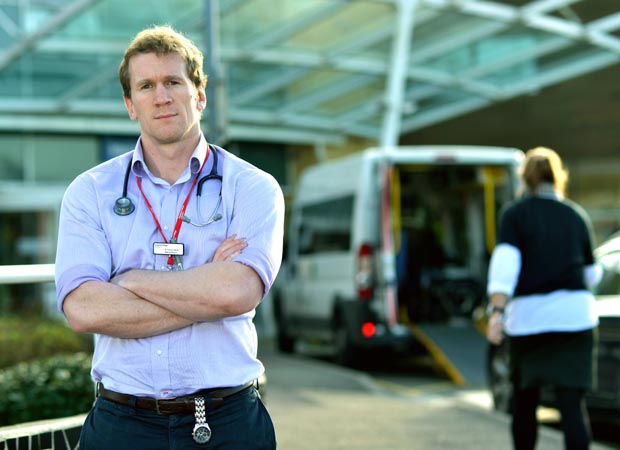
 He was, all the critics were agreed, going to be the England rugby captain for a very long time. That rare thing, a natural English openside with skill, pace and strength, there was also bit of old school dog in his play, learned at the feet of Lawrence Dallaglio and Joe Worsley at Wasps. Articulate and a natural leader he could well have been leading England into their home World Cup this autumn had the sporting gods looked kindly.
He was, all the critics were agreed, going to be the England rugby captain for a very long time. That rare thing, a natural English openside with skill, pace and strength, there was also bit of old school dog in his play, learned at the feet of Lawrence Dallaglio and Joe Worsley at Wasps. Articulate and a natural leader he could well have been leading England into their home World Cup this autumn had the sporting gods looked kindly.
Instead Tom Rees, still only 31, is now already a third year medical student at Imperial College on clinical attachment at West Middlesex Hospital for the next couple of months and so busy with his studies there are few opportunities to think of what might have been. Which is both for the best and how he planned it.
Where has the time gone? It seems like yesterday, not three years ago, that Rees was forced to retire prematurely after a long battle with various crippling injuries. A couple of big shoulder operations had for a long time seemed the main problem but eventually it was an ACL rupture that failed to come good after surgery which forced him to call time on his career.
“The medicine has been a godsend, an outlet for a lot of pent-up energy and something to get stuck into and approach with the same competitive attitude as my rugby,” says Rees during a brief coffee break. “The difference I suppose is that now I am competing against myself really. Challenging myself to excel on a tough six-year course which has areas outside of my comfort zone.
“Having said that I still grieve about the end of my rugby career. When I see my contemporaries still playing at top level, involved in the biggest games the sport has to offer. Mentally I’m still in that moment. Until I get to the age of 33-34 when I would have retired anyway I suspect that will always be the case.
“It can be pretty miserable if I dwell too much and I can see why some players who have to retire early through injury might turn their backs on the game. But even when I’m feeling fed up I know deep down that in the not-too-distant future I will look back and think this has worked out really well. There has been some good luck as well as bad.
“Touch wood I will now reach my mid-30s as a qualified doctor with all sorts of avenues and choices still available. If my rugby career had gone its full term would I have considered a six-year course that would take me into my 40s? Would Imperial or anybody else have accepted me under such circumstances? I might have found a lot of doors shut to me.”
Rees can still look back on a very considerable, if abbreviated, career. He played for every England age-group team imaginable, graduated through the Sevens and Saxons and eventually won 15 caps in a hectic 18 months between 2007 and 2008 before his body started breaking down.
In nine injury-plagued years he played 113 games for Wasps with the highlight undoubtedly their 25-9 win over favourites Leicester in the 2007 Heineken Cup final.
It would be tempting to assume that Rees’ interest in medicine came after endless hours spent on treatment tables trying to get his battered body functioning again but, in fact, he had already made the decision to apply for a place at medical school before the injuries really took hold.
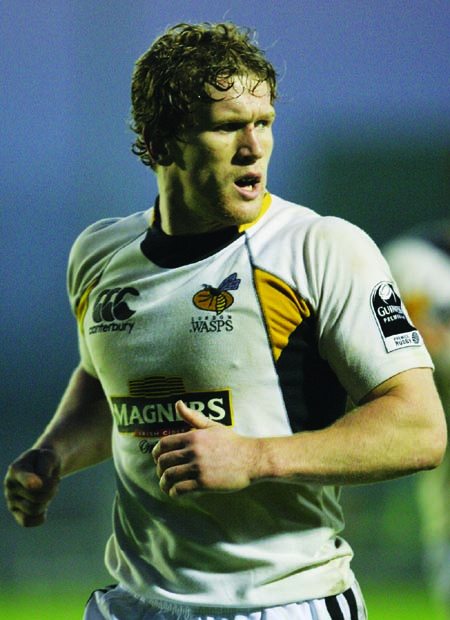 “Both my parents are medics and although I boldly told everybody at school that absolutely the last thing I would ever do in life is become a doctor, I soon found myself interested. I remember having a long chat with Jamie Roberts after a Wasps game against Cardiff and he was saying how if everybody was on board – club, university attachment, hospitals – it was still just about possible to combine the two.
“Both my parents are medics and although I boldly told everybody at school that absolutely the last thing I would ever do in life is become a doctor, I soon found myself interested. I remember having a long chat with Jamie Roberts after a Wasps game against Cardiff and he was saying how if everybody was on board – club, university attachment, hospitals – it was still just about possible to combine the two.
“I liked the sound of that so the first thing I did was study for chemistry A-level which I was going to need when applying for an undergraduate place because I never attended university so didn’t have the postgraduate option.
“I was in the game long enough to see what a lot of the guys who retired from rugby went on to and to be honest a lot of it left me cold. Even if I had done well financially in the last five/six years of my career and was theoretically fairly comfortable I would still have been looking to launch out in some other direction and to do something challenging.
“For me there is only one thing that counts when you retire and that is find a job or occupation – anything – you are as passionate about as your rugby. I’m pretty hopeful and confident I will get as much satisfaction and fulfilment out of medicine as I did at rugby . . . and I had a fantastic time for most of my rugby career. I had my applications in place for an undergraduate course some time before the axe finally came and almost immediately had something new and exciting to focus on.”
Imperial Medical College embraces three old teaching hospitals – St Mary’s, Charing Cross and Westminster – all of whom have a strong rugby tradition but particularly St Mary’s who used to be a real power in the land with a first-class fixture list and spawning a number of illustrious internationals.
The amalgamated rugby club, which plays at St Mary’s splendidly-appointed Teddington ground has provided the ideal arena for Rees to decompress from top level rugby.
In his first year he helped coach the Imperial Medics and last season, way under the radar, he dusted off his boots and started to play the occasional game. Even on one leg he was able to contribute mightily, so much so that he took a starring role in their 37-11 win over Imperial College in their annual ‘varsity match’ against the University proper at the Stoop. Statistically he is the 17th Imperial player – 15 from the old St Mary’s – who also played Test rugby.
“I was well aware of the history of the club, particularly the St Mary’s side of things with all their internationals and the JPR Williams connection in the early Seventies and wanted to be a minute part of that. The ‘varsity match’ was also my personal farewell to the game. I wanted to finish playing a proper game of rugby, not on the operating table or physio’s couch.
“I built up steadily and sensibly last season with a few run-outs but then came this full-scale match against our biggest opponents. I even did some fitness work ahead of the match. It was a great way to sign off but it was three weeks before my body started working again and I could walk properly, so it definitely reinforced my decision to retire.
“That’s probably it, I doubt I’ll ever play again but I’ve got the circumstance of my departure out of my system. I left the game I love as a player, albeit battered and limping as I headed to the bar.
“Generally I feel great these days. It’s amazing how much better you feel not having to tackle or run into 19st brutes for a living. Like most former players I quickly lost a deal of weight when I stopped and up to a certain threshold I can do normal fitness stuff to keep in decent shape. But with the knee there is a very precise point that if I cross it immediately gives me hell.
“It’s very nice to still have a rugby connection at Imperial but it’s very much on my terms, when the mood takes. As anybody who has suffered a serious rugby injury will tell you there are some days when you just don’t fancy hanging around the game because the truth is you can no longer physically do things once you took for granted. That doesn’t always feel great.”


Latest News
Super Rugby Americas: Round Ten Review

British and Irish Lions
British and Irish Lions: Biggest winners and losers from Andy Farrell’s selection

















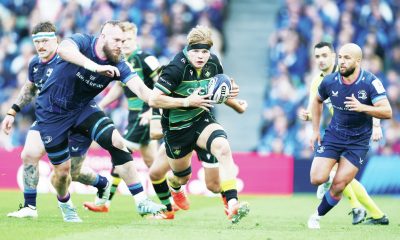

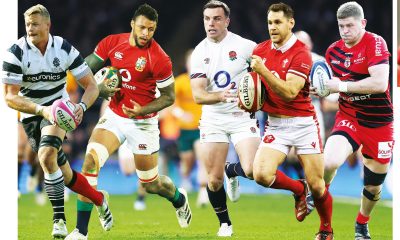

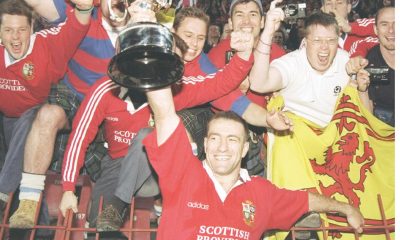



You must be logged in to post a comment Login